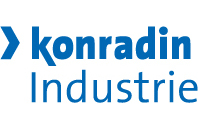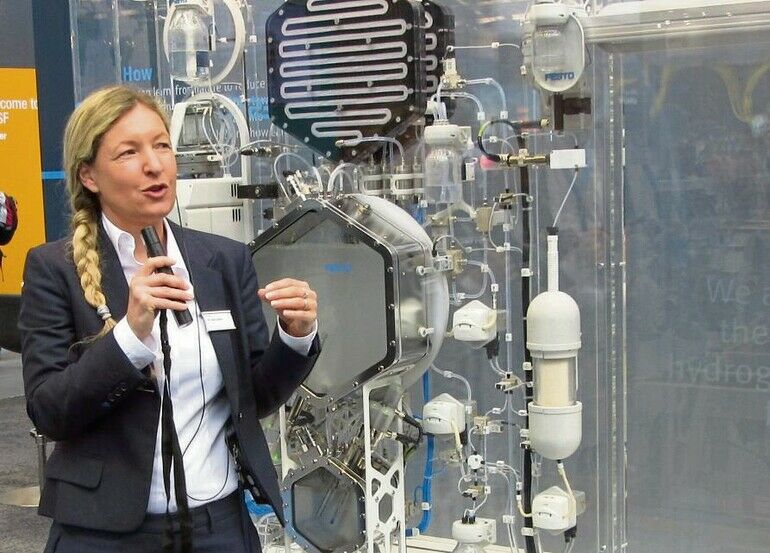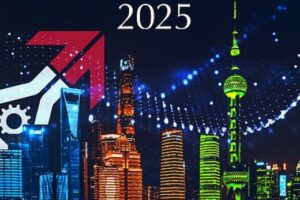Festo presented automation concepts for hydrogen production, battery recycling, algae cultivation and bioreactors. Also, the BionicHydrogenBattery, which is being exhibited at the stand, was described by Dr. Nina Gaissert from Festo‘s Corporate Portfolio Projects.
Currently, H2 can only be stored and transported safely and in a space-saving manner using processes that require extremely low temperatures and/or high pressures (150 to 700 bar). In contrast, the fully automated biotechnological system BionicHydrogenBattery is a completely new approach: hydrogen and carbon dioxide are converted into formic acid with the help of bacteria (Thermoanerobacter kivui) in a low-risk and energy-efficient manner at comparatively low temperature (around 65 °C) and pressure (1.5 bars). The acid can then be easily stored and transported.. At the destination, the same bacteria reverse the process and decompose the acid back to CO2 and H2. While the latter can be used to generate electricity, the high-purity CO2 could be recycled and used in the beverage industry, for example. In the exhibit, it is recycled within the scope of a circular economy and reused to produce formic acid.
This process was discovered and fundamentally developed by the research group of Professor Dr. Volker Müller, head of the department of Molecular Microbiology and Bioenergetics at Goethe University Frankfurt, with whom the Festo team is working on the project.
Festo
Hall 8.0, Stand C38








